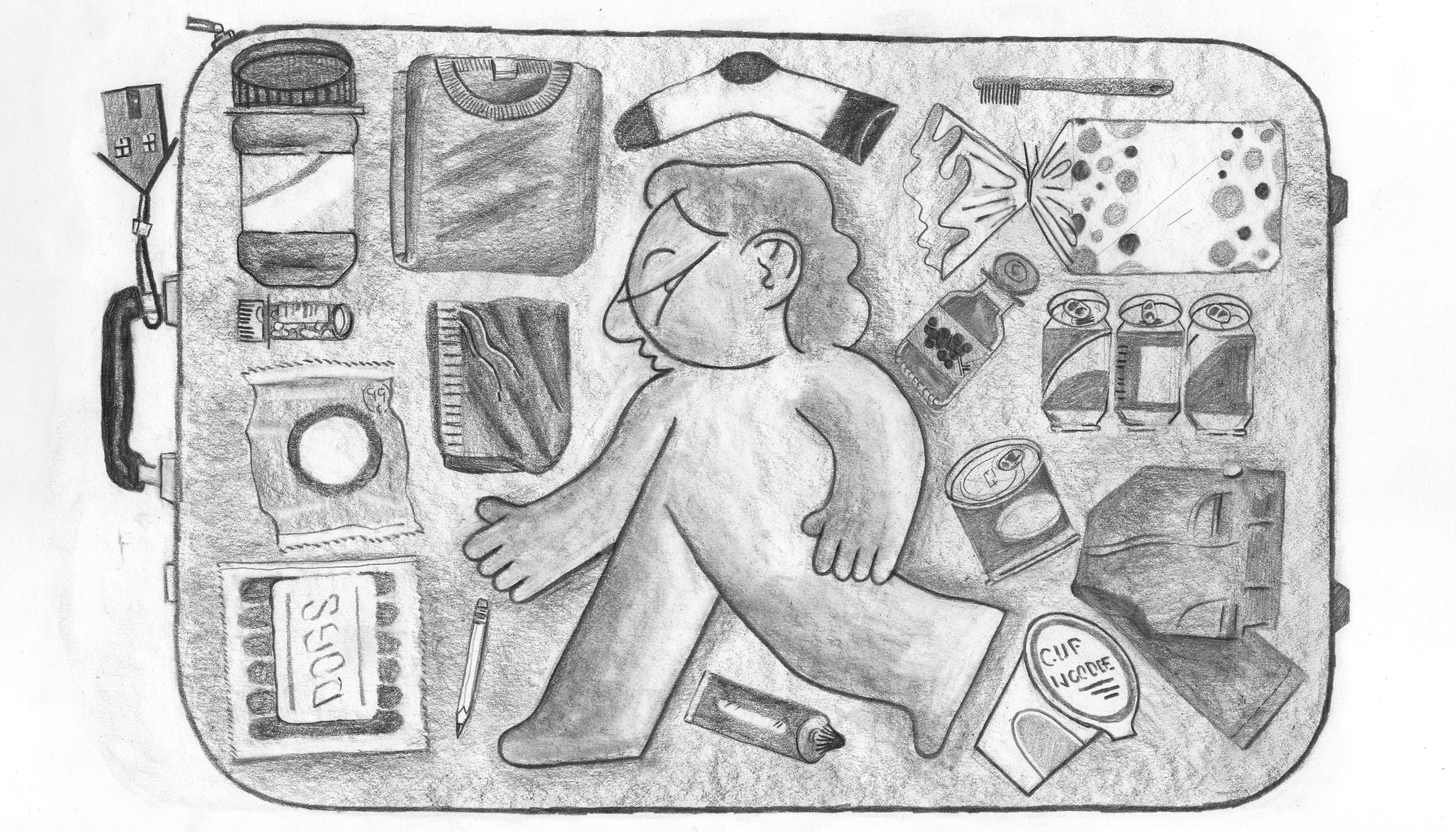How a Homeless Stint in High School Brought My Family Together
While my friends focused on school crushes and prom dates, my recently evicted family shared a bleak motel room—and finally faced how my mother’s mental illness led us there.

Illustrations by Sarah Lammer
“God, that stinks,” my sister Jamie says when I pull my cup of noodles out of the microwave. “Did you have to get something that would make the whole place smell?”
“I didn’t know it would stink” I reply. “It sounded good.” I set my meal on the nightstand and bounce onto the plain green floral comforter, pulling my legs up under me.
“What are we watching?” I ask our stepfather Russ, who’s sitting on the bed next to ours.
“Not sure yet,” he answers. He flips through the channels, but I can tell he’s not really taking in what he’s seeing.
“Wait, isn’t this that new show I’ve seen all those commercials for?” I ask. Jamie shrugs.
“It’s supposed to be really good. ‘Lost,’ I think? It’s got something to do with a plane crash, and these people get stranded. It’s starting tonight, so we haven’t missed anything.”
Russ drops the remote onto his own hideous comforter, and we settle in to watch. I’m glad for anything to focus on other than our current situation, anything to …
Keep reading with a 7-day free trial
Subscribe to Narratively to keep reading this post and get 7 days of free access to the full post archives.



